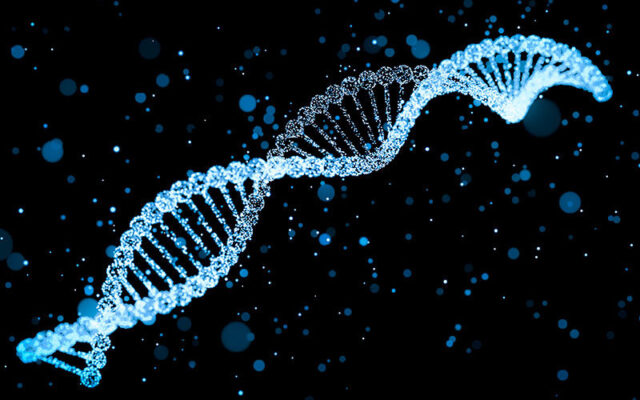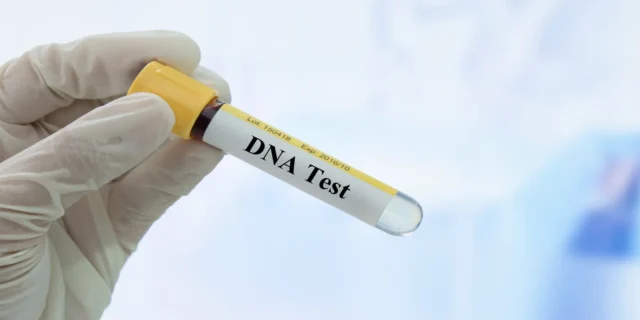
Technological advancements shape the world we walk on and have affected every single segment of a modern man’s life. Fortunately, nowadays, an individual can acquire impressive amounts of data regarding their DNA from the comfort of their chair, as long as they follow the instructions given by the DNA testing service. Still, an overwhelming majority of interested ones are worried that the story might sound too good to be true. If you fall into the group and wonder if a DNA test can give a false positive, we advise you to go through our 2025 guide.
To make a long story short, we should underline that different people decide to do DNA testing for numerous reasons. Another factor that you should consider if you intend on finding out more about your DNA is the type of test that would provide the most detailed report on the sample. In a nutshell, commercial testing implies 3 main test types.
Test Types
What we should also highlight is that your gender impacts which test is the most appropriate for your cause. Namely, if you would want to determine who your male ancestors were, you would have to go for Y-DNA testing, since females do not inherit this type of chromosome.
On the other hand, both male and female individuals can do mtDNA tests because both genders have mitochondria. When autosomal DNA tests are in question, we should clarify that both genders can use them to find out more about their ancestry since they imply testing autosomal chromosomes an individual receives from both of their biological parents.
1. Y-DNA Test

As we have already mentioned, this form of DNA testing can only provide credible results for males. The catch lies in the Y chromosome, which is typical for the masculine population, and it is transferred from one male individual to another as a piece of the genetic package one receives upon conception. To make a long story short, your father inherited it from your grandfather while he inherited it from his father, and so on.
The downside of this testing type allows only males to be tested, but even female individuals can obtain useful information about their male ancestors by having their closest relatives, such as brothers or uncles in the male line, tested. In most cases, people opt for Y-DNA rests if they want to establish whether they are related to a specific male individual or not.
2. Mitochondrial DNA Test
Even though we all have mitochondria, we receive DNA information this way only from our biological moms. To make a long story short, fathers do not transfer mitochondria-related genetic information to their offspring because an individual receives it from their first of kin’s egg cell. Still, both males and females can use this test to determine their relationship with female ancestors.
Now, as the Y-DNA tests, mtDNA analysis allows you to determine whether a specific person shares the same genetic material with you. Only this time, it covers your female ancestry. If you want to learn more about not solely these, but also about other types of testing, we recommend you consult CRI Genetics for additional info.
3. Autosomal DNA Test

To bring you closer to the idea of why this form of DNA testing might be more appropriate than the alternatives, we should point out a field of action it encompasses. Namely, as its name suggests, autosomal DNA examination focuses on the analysis of the DNA information you receive from both of your biological parents. In other words, it reads the inscriptions kept within the 22 pairs of chromosomes that constitute the autosomes.
Since it tests more, this form allows you to find out sufficiently more pieces of information than tests that focus on data one receives from their parents individually. One of the most interesting facts about autosomal DNA testing is that you can determine where your ancestors might be coming from with considerable accuracy. Still, not this nor the alternative test types are perfect and depend on additional pieces of information such as customs, family surname, tradition, and others which contribute to forming a bigger picture.
Additionally, we should conclude that autosomal DNA testing depends on the number of individuals who have become a part of the peculiar database. Namely, the more data a database handles, the higher the probability is that you will get a more detailed report on where your ancestors come from.
Family Diseases
Why a significant number of individuals opt for testing is to determine how to deal with numerous health issues they might be struggling with. In a nutshell, some people are more probable to suffer from specific ailments than others, and acquiring pieces of information typical for your DNA haplogroup can help you focus on treating the cause, rather than symptoms. Basically, the sooner you find out your lineage is prone to a disease, the more time you would have to dedicate to it on time.
Parenting Tests

Determining whether one is or is not a parent of an individual is one of the most common causes why people go for DNA testing. The answer you are looking for is not easy to give since every action involving a human factor can go wrong due to numerous reasons. In a nutshell, DNA testing can give a false positive if the procedure fails to be carried into effect regularly.
When parenting tests are concerned, we should underline that the testing implies comparing two separate genetic samples. If the samples match in a high percentage, the case should be closed with a logical conclusion, and that is that the tested subjects are related.
Now, sampling DNA is as easy as it gets while keeping the samples should be taken seriously in order for the results to be as trustworthy as possible. A company providing the service should provide you with detailed instructions on how to do your best not to mess up with the samples. Nowadays, you can even send the samples by mail, but we recommend you visit the facility in person if you have the chance and do what you can to increase the probability of obtaining more accurate results.
Hopefully, the aforementioned pieces of information have brought you closer to how DNA testing works. Even though the testing might provide a false positive, there are no better ways to get your hands on specific data than by DNA testing. If you are having second thoughts about a particular result because it appears to be illogical, the best option might be to repeat the test, rather than to quit due to dissatisfaction with the outcome. Mistakes can happen, but they should not repeat, so do what you can to anticipate them.












